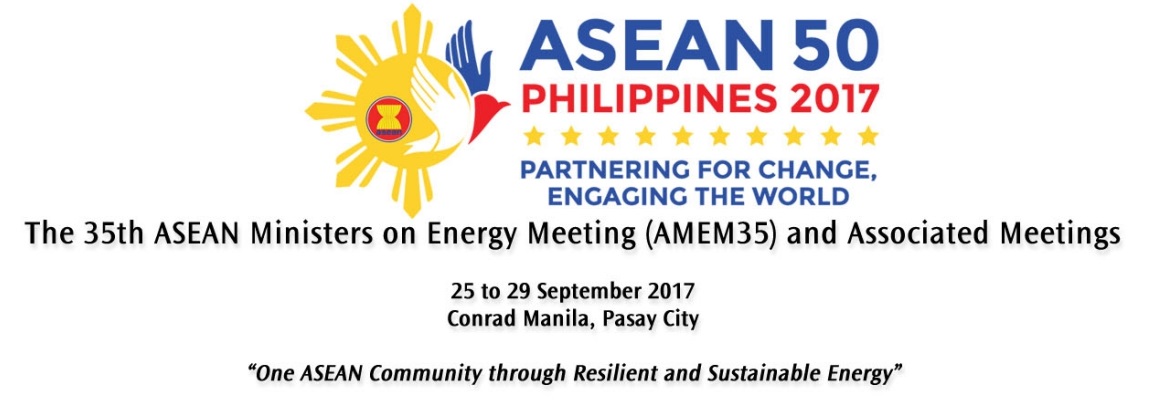
(Taguig City). How should the members of the 10-member Association of Southeast Asian Nations (ASEAN) ensure access to, and adequate supply of, resilient and sustainable energy?
That's the main agenda of the 35th ASEAN Ministers on Energy Meeting (AMEM35) and Associated Meetings hosted by the Department of Energy (DOE) on Sept. 27 to 29.
“We envision dynamic and robust collaboration within ASEAN and dialogue partners as well as relevant international agencies,” said DOE Secretary Alfonso Cusi in describing the upcoming event at Conrad Manila, Pasay City.
With the theme “One ASEAN Community to Resilient and Sustainable Energy,” AMEM 35 will lay the groundwork for enhanced cooperation under the ASEAN Plan of Action for Energy Cooperation (APAEC) 2016-2025, Phase 1: 2016-2020, according to Cusi.
APAEC is a series of policy guidelines to implement energy cooperation as part of regional integration towards a globally competitive ASEAN.
A closed-door meeting between the ASEAN energy ministers and CEOs on strategies to address power demand in the region will highlight the ASEAN Energy Business Forum (AEBF) 2017 Conference which will run concurrent with AMEM35.
The series of ministerial meetings under AMEM35 also include the 14th AMEM+3 (China, Japan and Korea), the 11th East-Asia Summit Energy Ministers Meeting (EAS-EMM) and the 1st AMEM-International Renewable Energy Agency (IRENA) Dialogue.
Concurrent with the AMEM35 is the Powertrends International Exhibition at the SMX Convention Center.
AMEM and AEBF will jointly open the event in the morning on September 27. The 2017 AEBF Conference will culminate with the closed-door ministers-CEO dialogue late in the afternoon.
AMEM35 is an annual gathering of the Energy Ministers which provides guidance and directions in the development and implementation of key energy sector priority initiatives and work programs in the region consistent with the directives of heads of states/governments of ASEAN.
The Philippines hosted the same meeting in 1997 and in 2004.
The ASEAN was established to promote economic growth and prosperity in the region. The member-countries include Brunei Darussalam, Cambodia, Indonesia, Lao PDR, Myanmar, Malaysia, Philippines, Singapore, Thailand and Vietnam.
###
